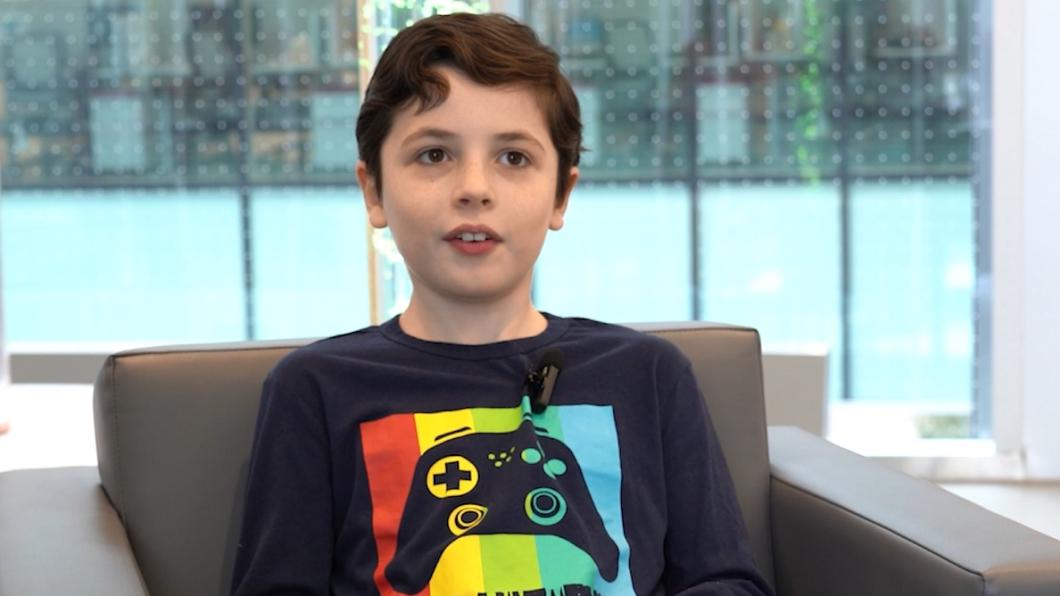
How clinical staff are offering new services and pathways to meet the unique needs of autistic kids and their families
As we mark Autism Acceptance Month, we are celebrating the teams who strive to enable meaningful and healthy futures for autistic kids and youth as well as their families through ground-breaking clinical, research and teaching innovations.
We are also building capacity in Ontario’s health-care system so that more families can access an autism assessment and receive care in remote communities.
Holland Bloorview’s autism services clinical team offers many vital resources and services to families, one of which is providing diagnostic assessments to children and youth who have been referred by a community physician or nurse practitioner.
The hospital is one of five autism diagnostic hubs in the province, serving families in the Toronto area. The hub has some of the lowest wait times for an assessment in Ontario.
Enhancing autism assessments: new approaches and supports for families
The autism clinical services team, led by clinical operations manager, Josh Scroggy, has implemented many innovations to support families through their autism assessment journey. For the past two years, they have worked with a multidisciplinary group and family leaders to redesign clinical pathways, tailoring autism assessments by different age groups. Scroggy says, that by segmenting the assessment by different age groups, the team can ‘triage the client to the appropriate care pathway’ that takes into consideration clients’ clinical, medical and psychosocial complexities.
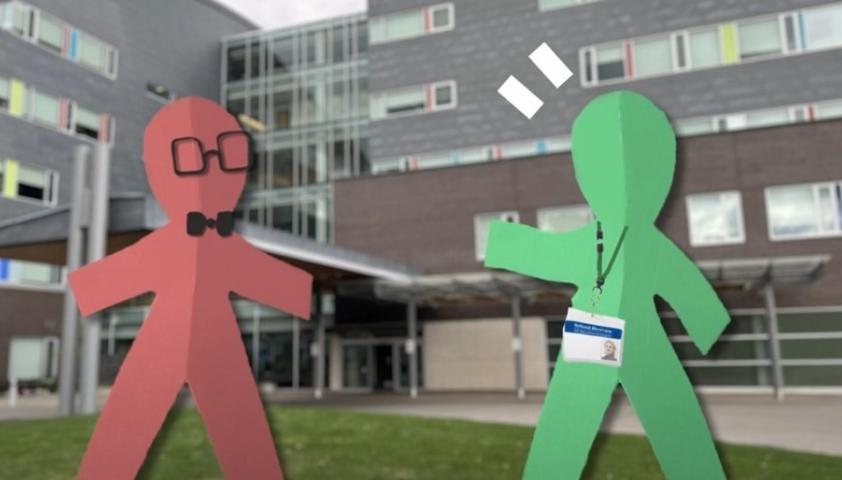
To support families who are waiting for an autism assessment, the team has also developed resources such as a video explaining what families can expect during an assessment and a list of resources for families of children under four as well as school-aged kids and teens. They also launched an online parent-led discussion group for families as a forum to share questions, experiences, information and ideas during the waiting period.
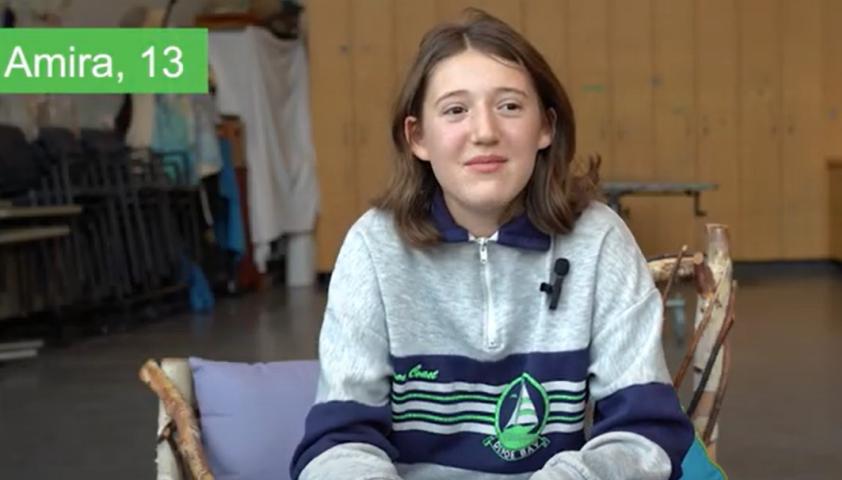
To reduce anxiety and help teens understand what an autism assessment looks like, the team launched a series of videos that feature autistic youths’ sharing their experiences through this journey.
“I am immensely proud of the team, family leaders and staff, and all the hard work that has been put in to redesigning our Autism Clinical Pathways. The redesign has produced clinical pathways that are more family, client and clinician-centered,” says Scroggy. “There are no words to describe the deep compassion, care and dedication they bring to their work.”
Meet the multi-disciplinary team
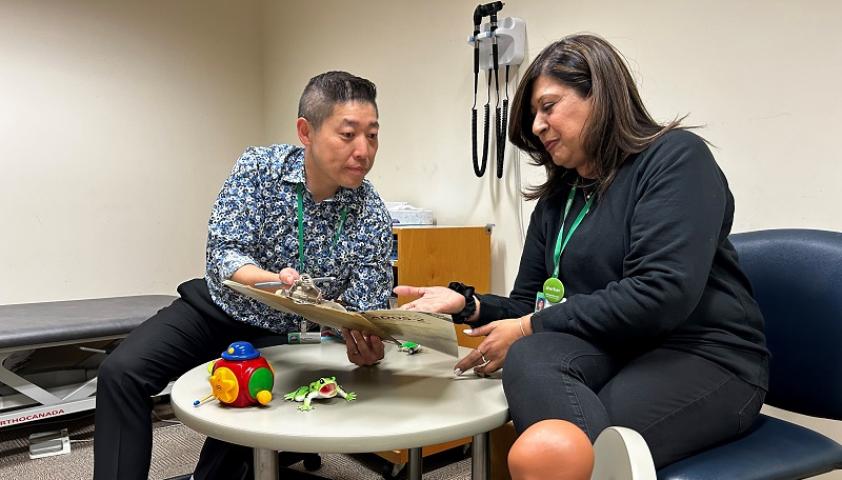
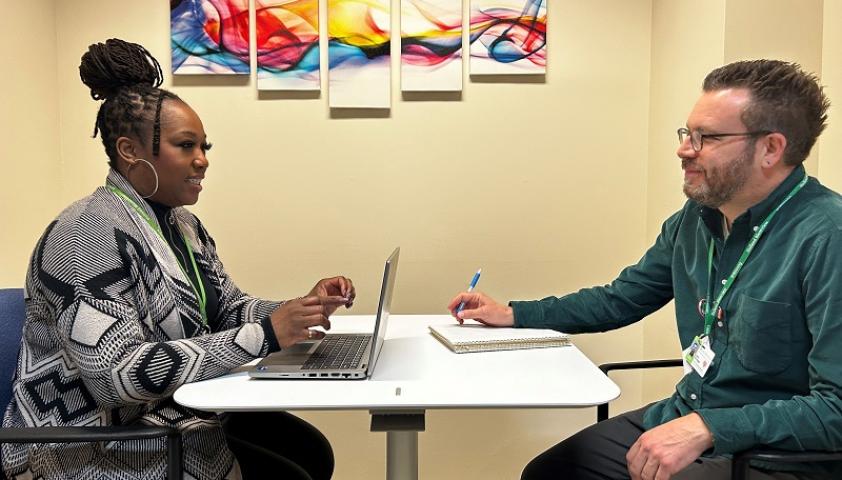
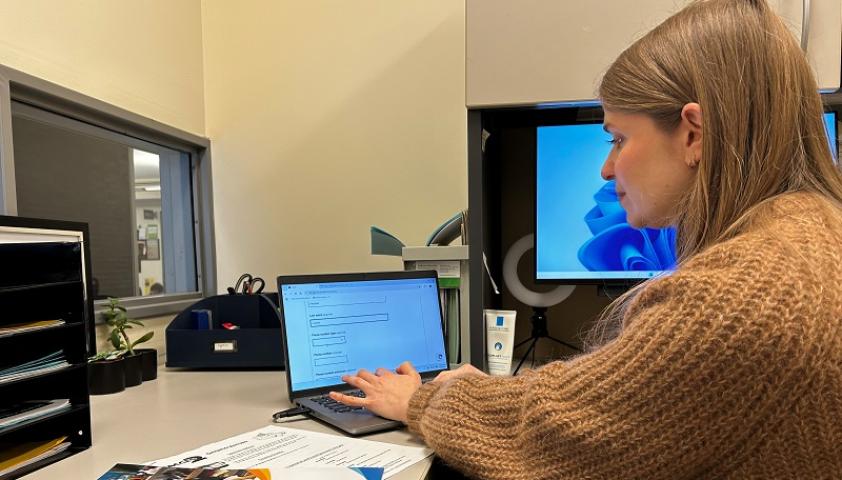
- Dr. Rhea D’Costa, a developmental pediatrician in communication, learning and behaviour clinic, assesses children and teens for autism and other neurodevelopmental differences. “I have the privilege of collaborating with parents, caregivers, teachers and allied health care professionals to ensure that we can create a supportive environment where every child can achieve their potential.”
- Dr. Thomas Rhee plays a pivotal role during the assessment process as a psychologist. “I feel it's one of the most essential first steps in the family's journey in order to better understand a child's unique differences, and provide recommendations around next steps to support them on their autism diagnosis journey.”
- To support the work of Dr. Rhee, Maureen Mosleh, a psychometrist, conducts play-based assessments with clients. She is often reminded of the ‘beauty and value [clients] offer this world through their youthful honesty’. “I am so grateful to have learned from each of them as they work so hard to offer me a glimmer of their world.”
- As a speech-language pathologist, Leah DeGorter conducts play-based assessments as well as language and communication assessments. She says she enjoys working closely with the diagnostic team, as well as helping families by providing strategies to support their child’s language development, while helping them understand their child’s unique communication profile following a new diagnosis.
- Occupational therapist Simmy Kassan consults with clients and their families to help support various skills of the client (i.e. sensory processing, self-regulation, fine motor, self-help skills). “Being a South Asian female occupational therapist on the autism services team, I am incredibly grateful to collaborate with such outstanding, diverse interdisciplinary team members to meet the needs of our autistic clients and their families for the past 20 years.”
- Shevonne Tatham, a clinical support nurse, supports the intake, coordination and flow of client clinical information through the communication, learning and behaviour service. She works in partnership with other members of the interprofessional team to ensure all clients have a positive experience. “Using a strengths-based approach, I partner with clients and their families to establish care plans that optimizes their health and wellbeing.”
- Once a child has been assessed and receives an autism diagnosis, Melanie Leitner, a social worker, would meet with families to review resources and funding options. “I hope that in meeting with families, I am setting them up with the resources and tools that they need to successfully support their child and this new diagnosis.”
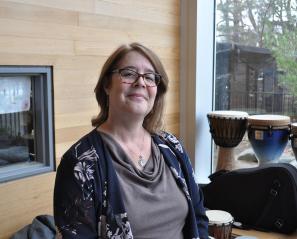
Study shows virtual CBT reduces anxiety in autistic children – improving access to care across Ontario
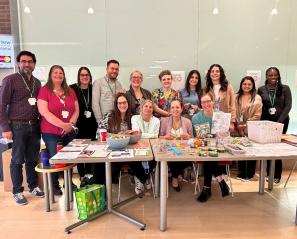
Celebrating the rainbow of neurodiversity at Holland Bloorview as we wrap up World Autism Month